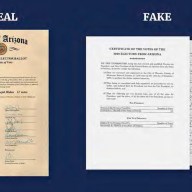Science takes time. Patience. Stamina.
In the middle of the Mediterranean, the schooner Tara is at the beginning of a three-year odyssey around the world: A 150,000 km long expedition to explore the invisible world of the oceans.
“Ninety per cent of the biological mass of the oceans is made of plankton,” explains Spanish marine biology researcher Silvia Acinas, scientific co-ordinator for Tara. “These organisms are responsible for absorbing 50 per cent of the CO2 emissions on the Earth and producing 50 per cent of the oxygen we breathe but we only know one per cent of them: This expedition is about discovering the remaining 99 per cent.”
The uncertainty of current climate models has a great deal to do with this unknown life.
As a matter of fact, oceans are the major factor influencing climate, as they work as carbon pumps to a greater extent than rainforests do.
Every other day, the boat stops for a twelve-hour scientific station — pumping, filtering, sorting and labelling. The five researchers on board usually have a long day during this exercise. Over a thousand litres of sea water are pumped on board and filtered in the wet lab to separate the different kind of sea plankton: Viruses, bacteria and protista.
At the back of the boat, the oceanographic winch allows to sample the sea water up to 2,500 metres of depth, thanks to the special Niskin bottles.
“They are very ingenious because their lids can be closed at a given depth taking samples at an exact point of interest,” explains French ocean engineer Hervé Le Goff.
The Tara Oceans expedition is sponsored by the United Nations Environment Program (UNEP). The 34-metre schooner has a mythical past: It was designed and sailed by the French explorer Jean-Louis Etienne, then by sir Peter Blake, and now under the command of Etienne Bourgois, CEO of the French designer company Agnès B.
The expedition costs 2.5 million euros for its logistics alone.
“But the Earth is priceless,” says Bourgois, whose Tara Foundation accounts for a great part of the budget.
Around the world
• Duration: 3 years (Sept. 2009 to Nov. 2012)
• Distance: 150,000 km
• Port visits: 60
• Oceans/seas crossed: Mediterranean sea, Red sea, Indian ocean, Atlantic ocean, Pacific ocean, Arctic ocean.
• Participating scientists: More than 100 people on land and 22 scientific co-ordinators.
















